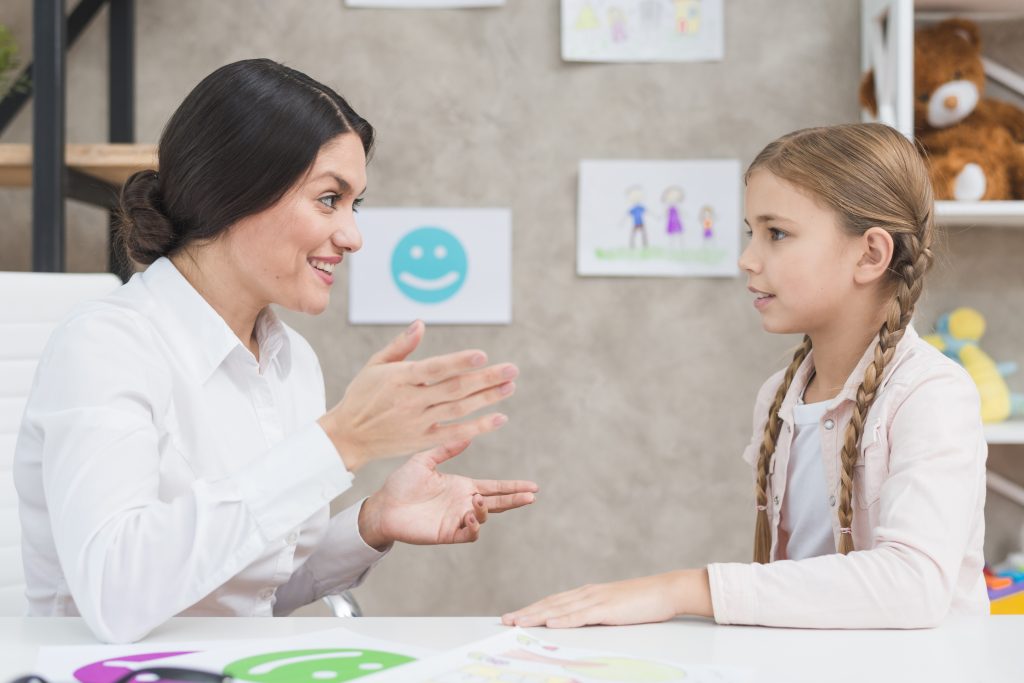Dealing with childhood abuse: How to heal and help?
By: Sahil Pawar
Feature Articles, Health & Welfare, Psychology, Social & Youth development,

Dealing with childhood abuse can be difficult for the victims or even for the witnesses who wish to help. Whether the abuse is a thing of the past or present, there is always hope and ways to heal and help.
According to the World Health Organization (WHO), child abuse or child maltreatment includes all forms of physical, emotional, sexual, or verbal ill-treatment which pose potential harm to the child’s dignity, health, and overall development. Neglect on part of the caretaker and exploitation of any sort is a part of the definition.
At an impressionable phase of life such as childhood, having to deal with abuse of any form can have catastrophic effects on the general well-being of the child. If left unresolved, these traumatic experiences of the past get carried well into adulthood and may disrupt the everyday lifestyle due to its severe repercussions.
Dealing with childhood abuse of the past:
For someone living with the emotional and psychological consequences of dealing with childhood abuse, here are a few ways to reclaim your life by healing the childhood trauma:

1. Acknowledge the issue of dealing with childhood abuse.
Recognize the trauma resulting from childhood abuse for what it actually is and accept that you have an issue to address. Unlike that, most victims often navigate through life by minimizing the event or downright dismissing it, as if the abuse did not take place. Their negligent behavior acts as a psychological barrier, keeping them from accepting the issues and thus avoiding the discomfort that comes from even the thought of it. However, in order to begin the healing, the first step is to acknowledge the issues resulting from dealing with childhood abuse.
2. Get rid of the self-blame.
Most of the time, victims of child abuse grow up blaming themselves for the mistreatment they endured from the perpetrator. They somehow manage to think that it was them that allowed the abuse to take place. Such thinking patterns bolster the guilt in the victims which becomes a barrier in the healing process. However, to heal from the trauma, it is important for the victim to understand that the abuse that they underwent was entirely the fault of the perpetrator and none of theirs.
3. Take control of your life.
Dealing with the aftermath of childhood abuse often leaves one feeling like a perpetual victim. The pain and discomfort of the past dictate present life choices. This does nothing but harm. The right approach would be to overcome the pain by letting it go and regaining control of the situation. Be it important life decisions or small ones that affect everyday life, to be mentally and emotionally capable of making them is important. Instead of just letting things happen, try to be proactive and be an active participant in life.
4. Maintain a healthy lifestyle.
In order to be more mentally resilient, maintaining a healthy lifestyle is imperative. Sound mental health is a result of a healthy lifestyle. Exercising regularly, eating healthy, and getting adequate sleep are some of the ways one can go about it. Also, one should plan daily activities with plenty of time to rest in between as hyperactivity may leave one feeling exhausted. Avoid alcohol consumption, smoking and drugs as they may exacerbate the existing mental health issues, thus hampering the overall healing process.
5. Reach out for support.
Coping with mental health issues like depression and anxiety on your own, which may be psychological consequences of dealing with childhood abuse, can be difficult or even impossible in some cases. Instead of isolating and suffering alone, one should reach out to a family member, friend, or a professional counselor for help. Sharing your struggles with a considerate person or forming meaningful personal relationships can make a considerable difference in terms of healing the trauma. One may even consider joining local supports groups meant for individuals dealing with childhood abuse.
6. Let time heal the scars.
Dealing with childhood abuse at a tender age can leave deep mental scars that may require time to heal. Despite doing all in the victims’ control to cure the trauma, one may still find oneself getting overwhelmed with the traumatic experiences of their childhood abuse. It is absolutely normal to feel that way. Complete healing takes time. Meanwhile, it is important that one remains patient and compassionate enough with oneself. Instead of expecting drastic changes, focus on small accomplishments and celebrate the baby steps you take towards breaking free.
Helping someone already dealing with childhood abuse:

If you are reached out by a child dealing with abuse or you know someone already dealing with childhood abuse, here are a few ways you can handle the situation:
- It is crucial to take such situations seriously and handle them with utmost delicacy. Your priority should be to ensure the safety and well-being of the child at risk.
- Encourage the child to open up by constantly reassuring them that the abuse is not their fault. Also, do not pressurize them for information. Be gentle and try to listen to what the child has to say.
- Try to comfort the child by being kind in terms of the words you use. Let them know that you feel sorry for what they are going through. Once they are comfortable with you, there is a much better chance they will open up more.
- Separate the child from the abuser immediately in case of physical or sexual abuse. Ensure that the child receives immediate medical attention in such situations.
- It is always best to report the abuse to the local child welfare center or the police authorities. They might be able to help investigate the matter better while keeping the child safe.
- Consider professional counseling for the child as it may help them heal better from trauma. Local support groups may also prove beneficial.
References:
“Child abuse.” Wikipedia, https://bit.ly/36yP4Wj. Accessed 22 March 2022.
Teicher, Martin. “Wounds That Time Won’t Heal: The Neurobiology of Child Abuse.” Dana Foundation, 01 Oct. 2000, https://bit.ly/3iDo3nh.
Tags: child abuse, Childhood Neglect, Childhood Trauma, Mental Health, Psychology,









